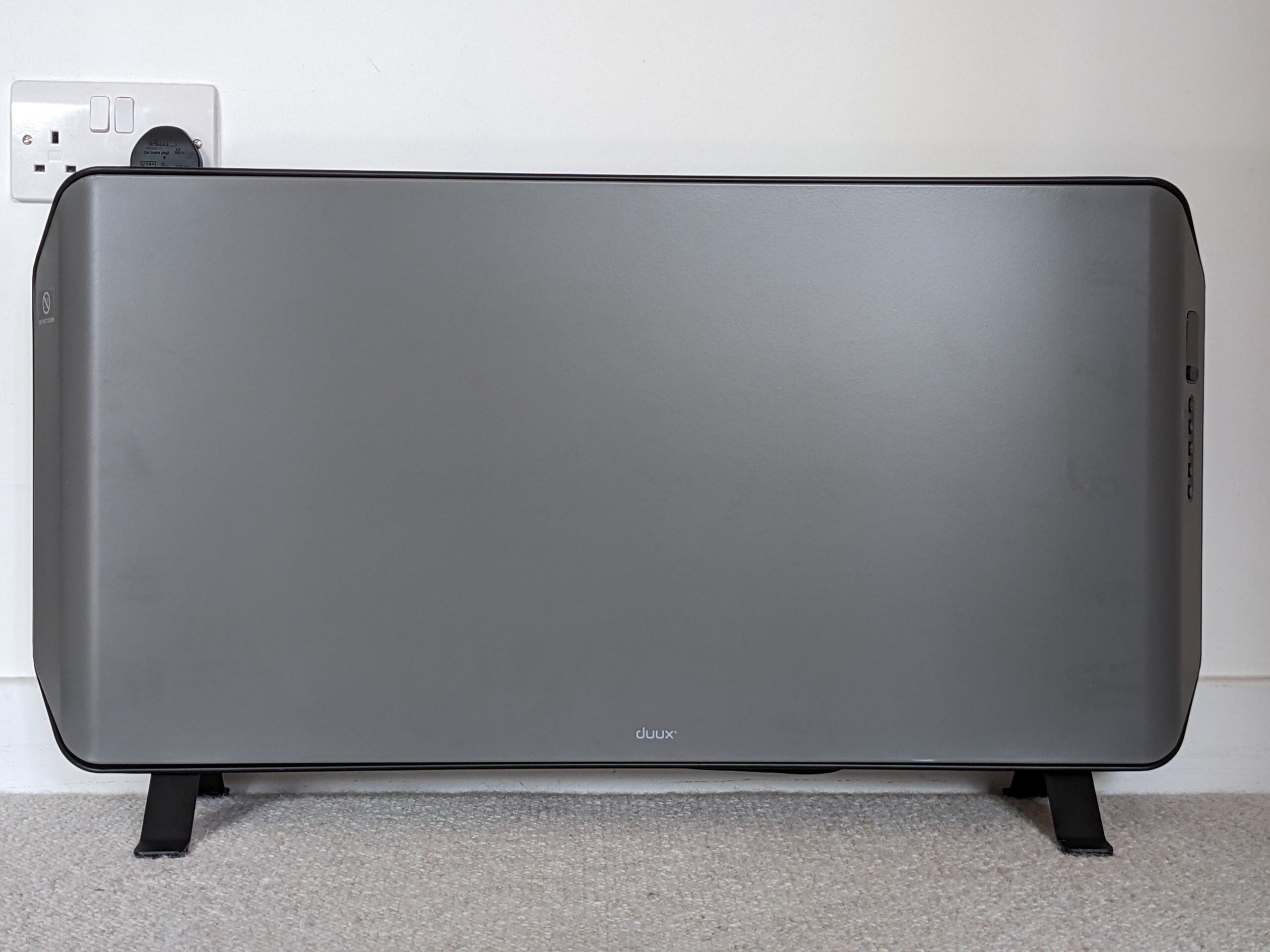VonHaus 2000W Oscillating PTC Heater Review
A decent fan heater, but it's hard to love
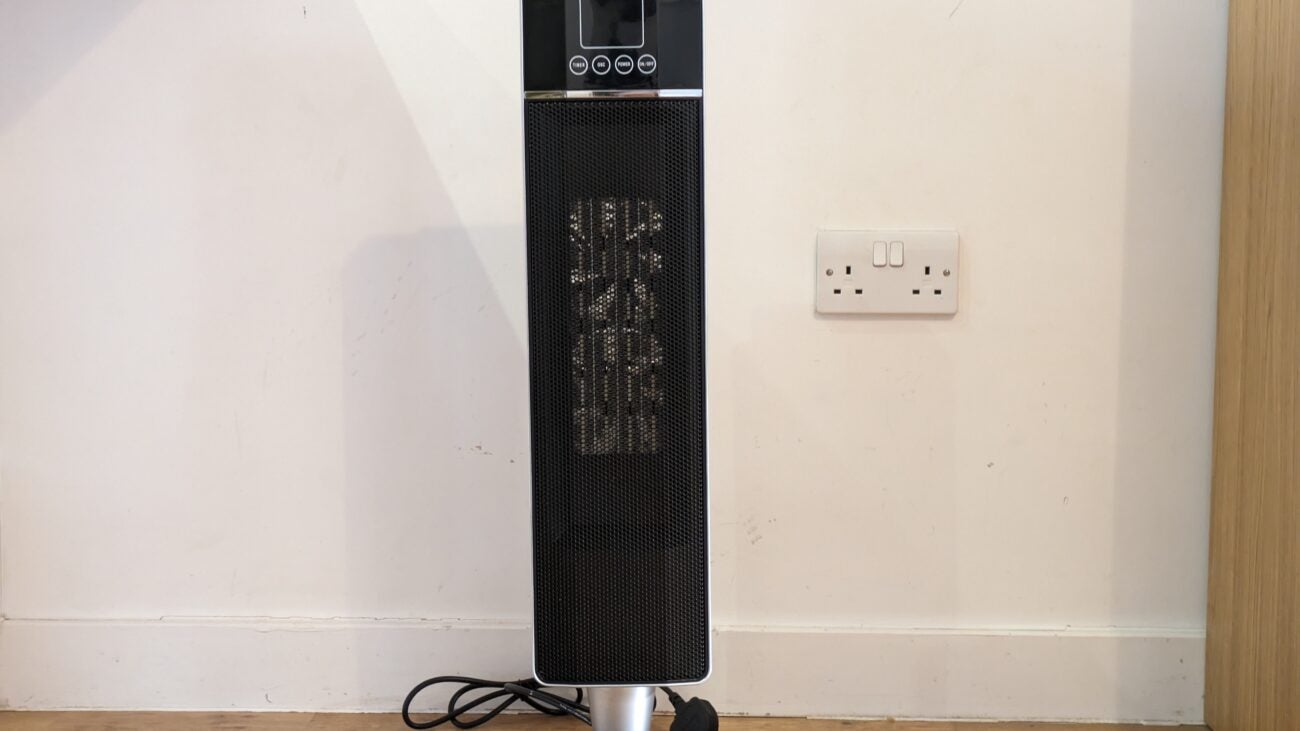
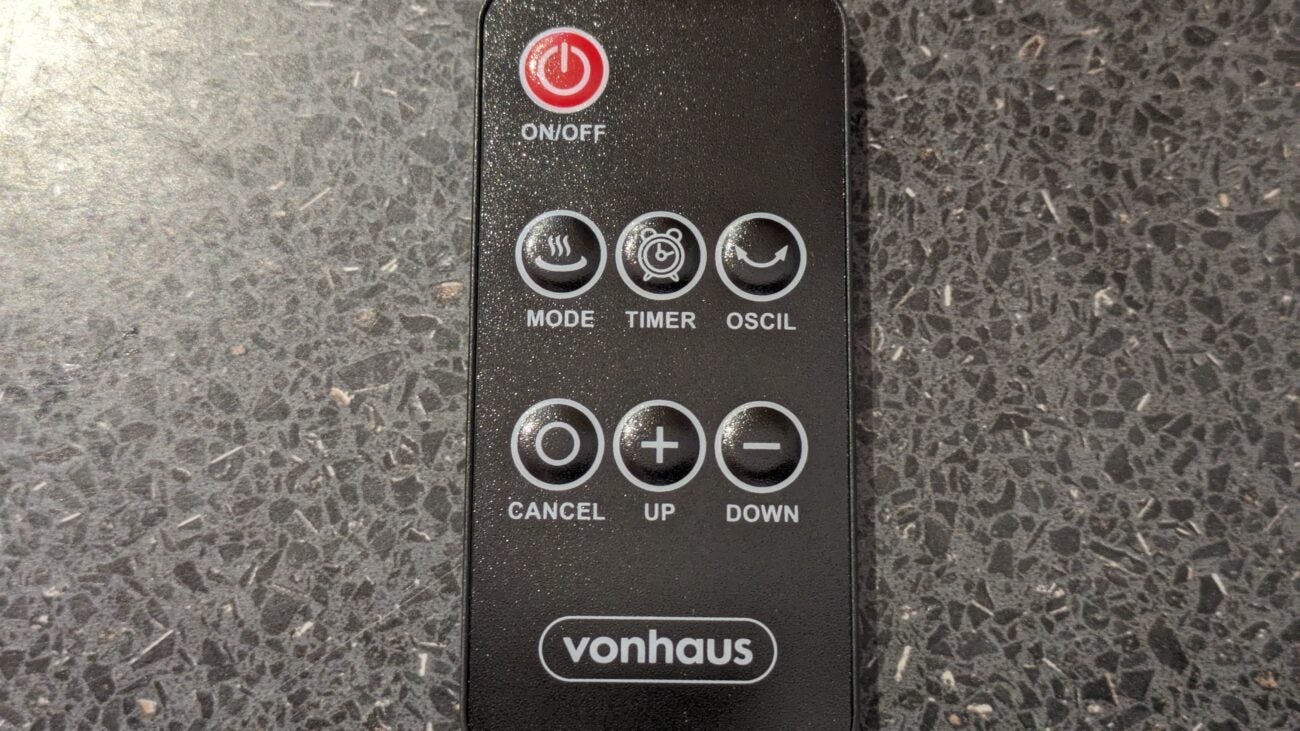
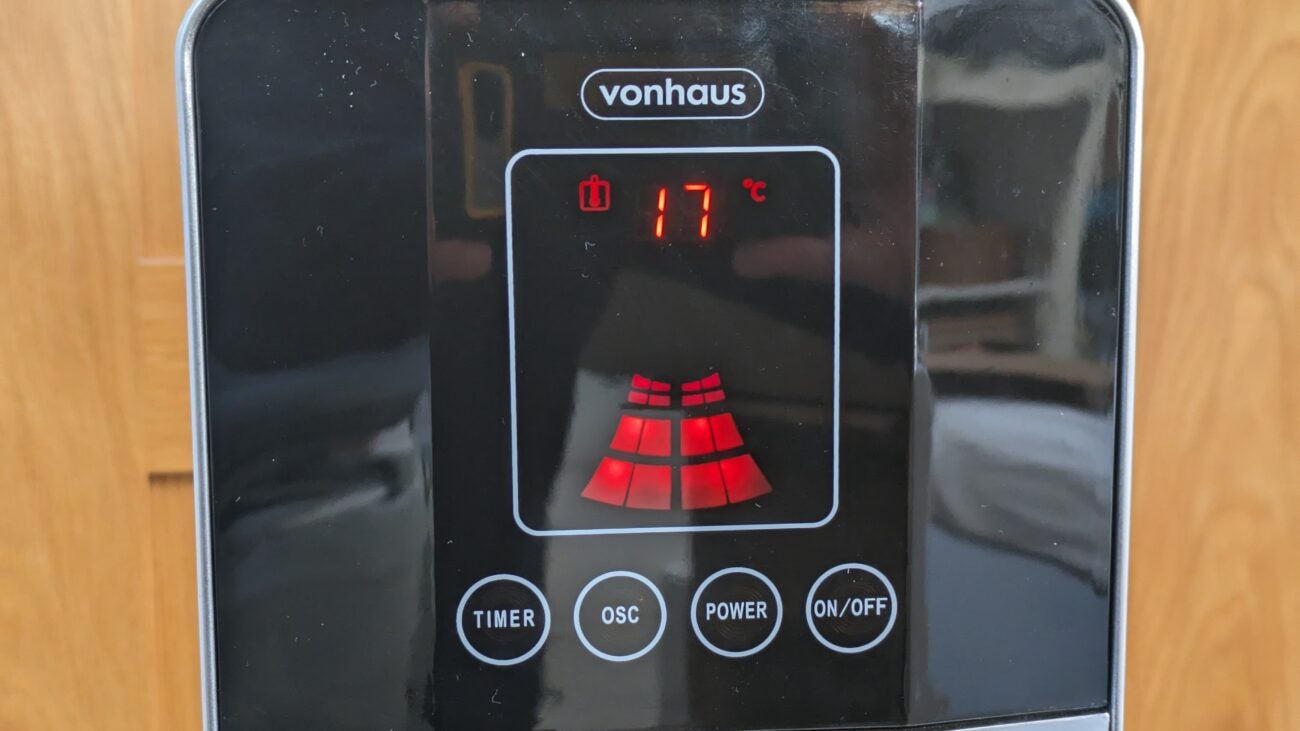
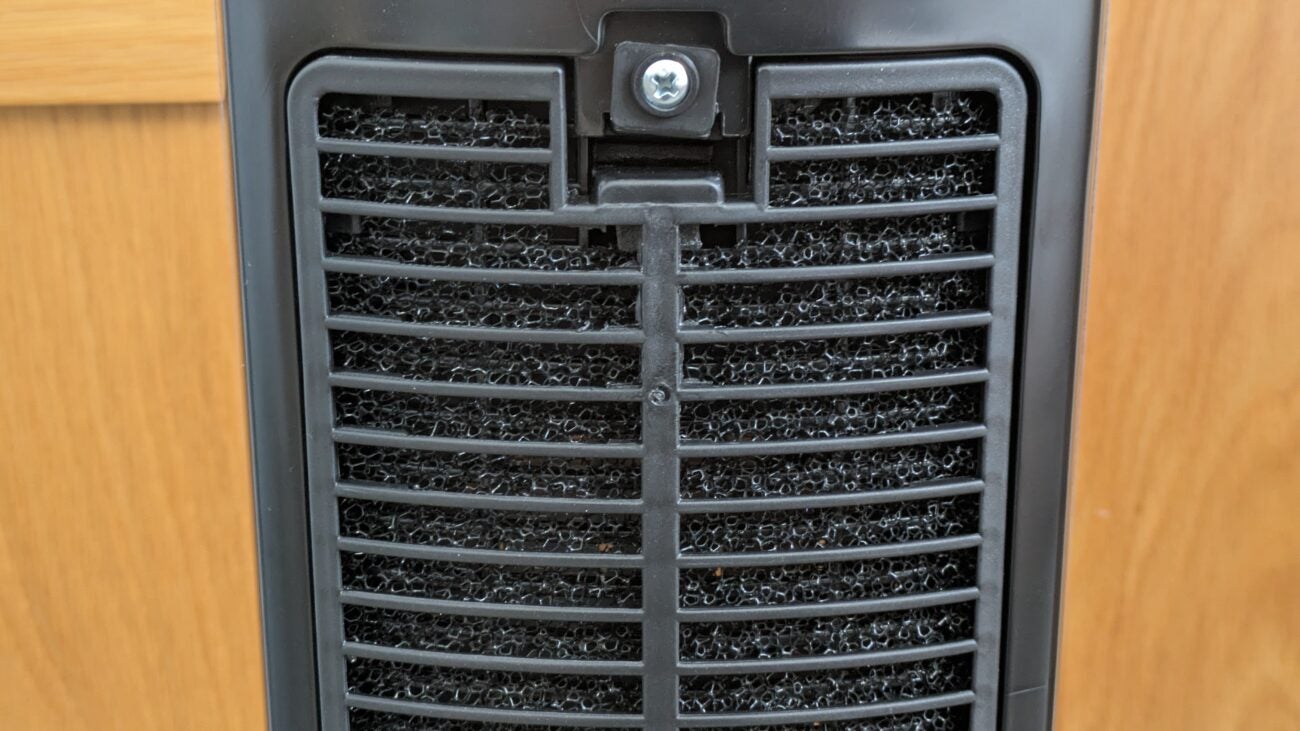
Verdict
This big fan heater from VonHaus is pretty effective, quickly warming a medium-sized room in our tests. It’s not too bad looking, either, although it feels a little flimsy and cheap in places. While it doesn’t have any smart controls, it comes with a straightforward remote, and is protected against overheating or being tipped over. It’s a good choice if you need a reasonably powerful heater for bigger spaces, but seems just a touch overpriced.
Pros
- Good heat output
- Useful remote control
Cons
- Feels a bit cheap
- Could be expensive to run
Key Features
- A fairly powerful fan heaterThis upright fan heater kicks out 2,000 watts of heat, making it a good choice in fairly large rooms. It oscillates, and comes with a simple remote, too.
Introduction
If you want a fan heater for larger rooms, this tower heater from VonHaus might do the trick. It’s rated at a strong 2kW, giving it the power to warm up reasonably big spaces – especially if they’re well insulated. Its very upright design means it doesn’t require much floor space, while an oscillation feature helps it reach the parts other fan heaters might overlook.
This is a fairly straightforward heater, featuring relatively basic controls. It’s enhanced by its included remote control, but there’s no smart programming, and also no energy-saving features like open window or presence detection. With this basic feature set, it’s arguably a touch overpriced.
Design and features
- Smart design, but cheap-feeling
- Basic controls
- Essential safety features
VonHaus has a knack for making no-nonsense, effective fans and heaters, and the 2000W Oscillating PTC Heater looks like the latest example. It’s essentially a tower fan combined with a 2000-watt ceramic, positive temperature coefficient (PTC) heating element. These warm up a little quicker than a standard element, and in the one fitted here kicks out a medium-high amount of heat.
This heater runs in one of three simple modes: high, low, and fan-only. Its fan runs at a constant speed no matter what mode you’re in. At its top you’ll find a big, simple display which shows the current room temperature and what heat level it’s providing. Just beneath this, touch-sensitive buttons let you change the power level, turn oscillation on and off, and set an off timer in one-hour increments up to eight hours.
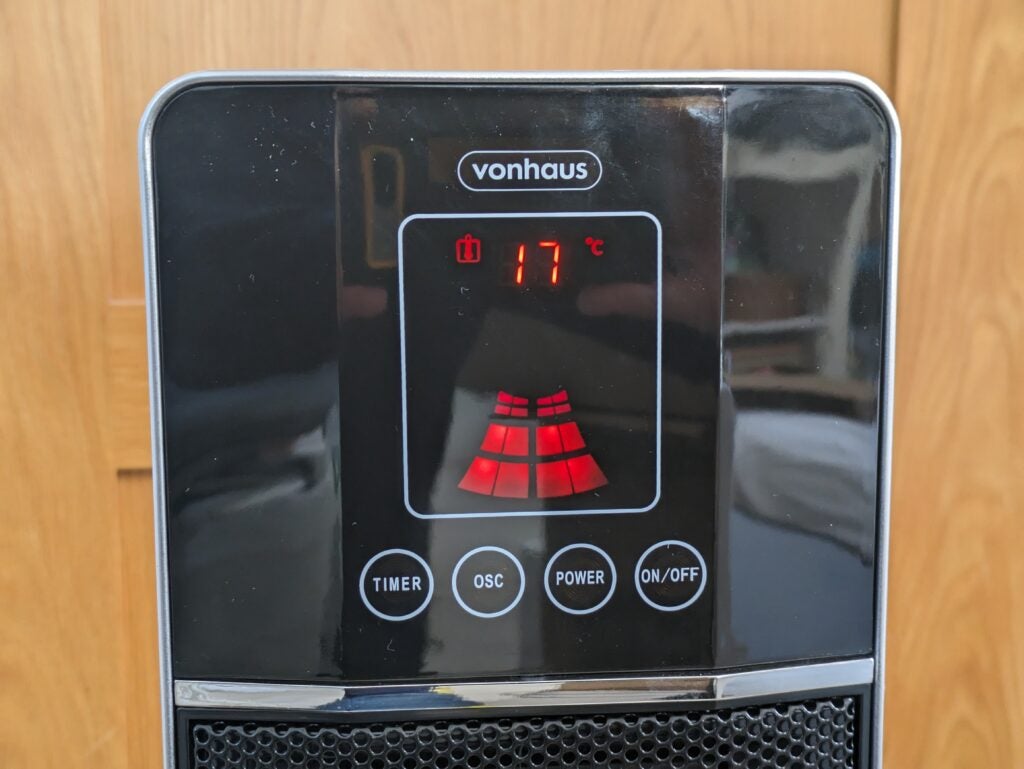
You can operate the same features using the supplied infrared remote, but this also lets you set a target temperature, which the VonHaus 2000W Oscillating PTC Heater will work towards. It’ll automatically reduce the power as it gets close, eventually switching to fan-only mode until the room has cooled enough to need heating again. This is a great feature for saving energy and preventing overheating, so it’s a real shame you can only change the target temperature through the remote, which you might lose or break over time.
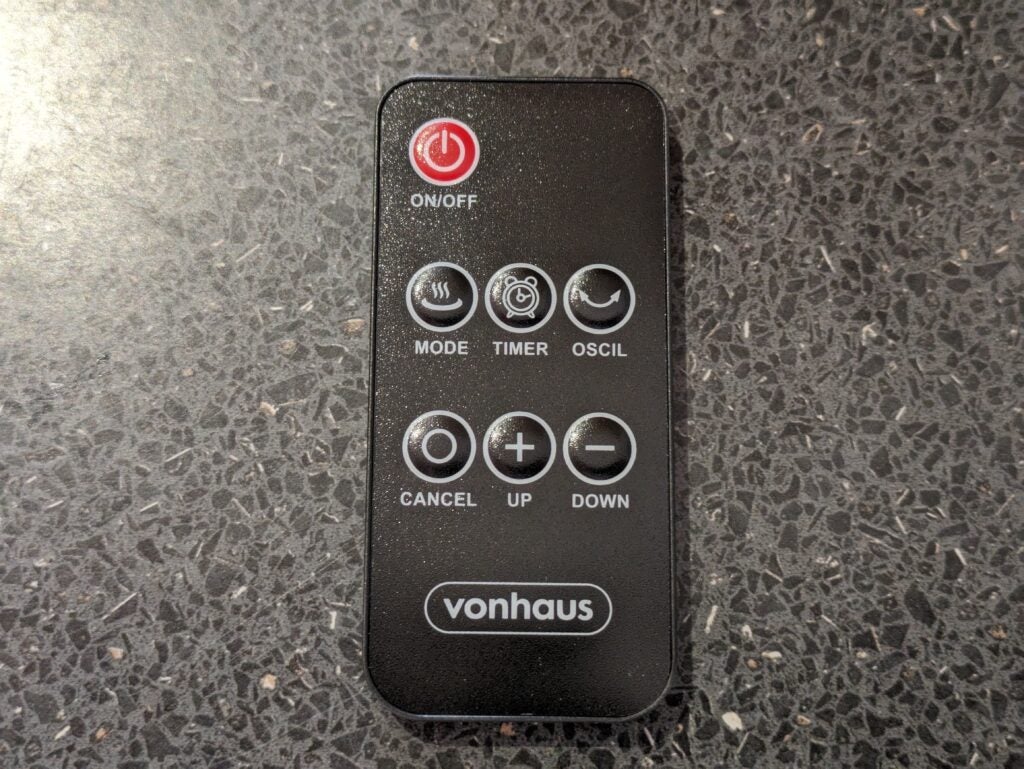
One other minor issue is that the minimum target temperature is 10°C, which is too warm to be much use for frost prevention.
As with many fans, you’ll need to fix this heater to its base before using it. My example initially looked quite wonky, with a Tower-of-Pisa-esque tilt to the left. I realised I’d missed out a silver trim disc from the base, but even after reassembling it, the heater still leant at a jaunty angle. I also noticed that the metal front grille was easy to dent, while the case plastic seemed a bit thin and rattly in places.
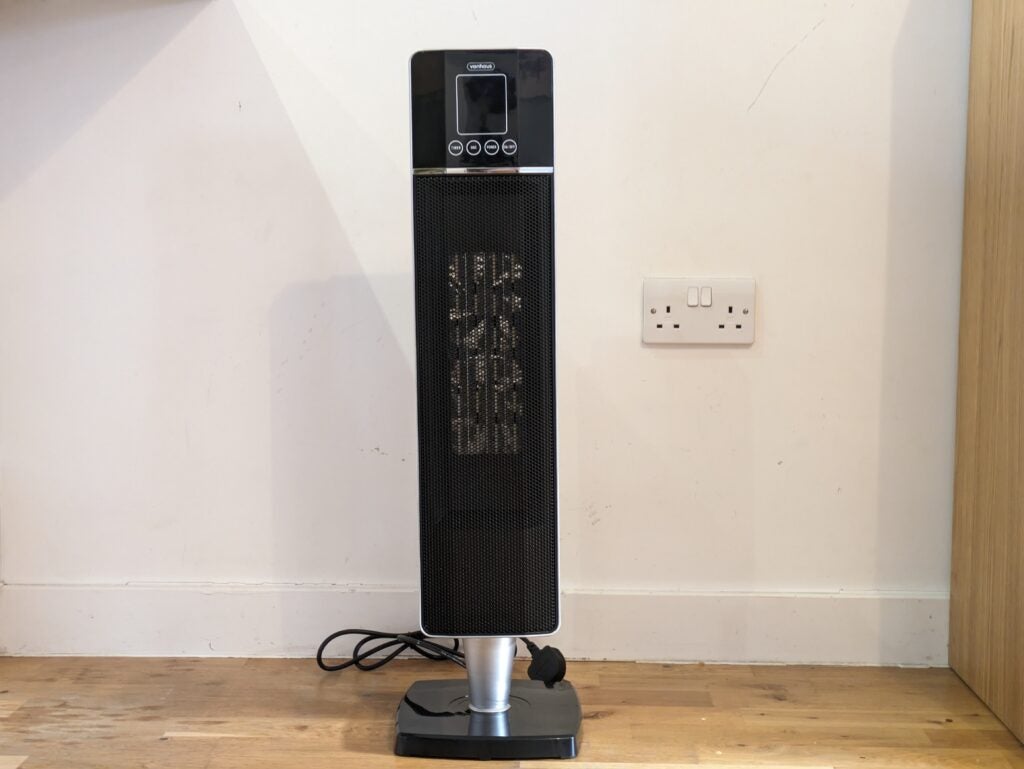
Despite its raffish stance and small footprint, this heater’s weighty base kept it quite stable – you’d need to give it quite a shove before it would tip over, at which point its tip protection feature would shut it down. That’s good to have, as is the built-in protection against overheating. The air intake is covered by a dust filter which you can extract and wash after removing three screws.
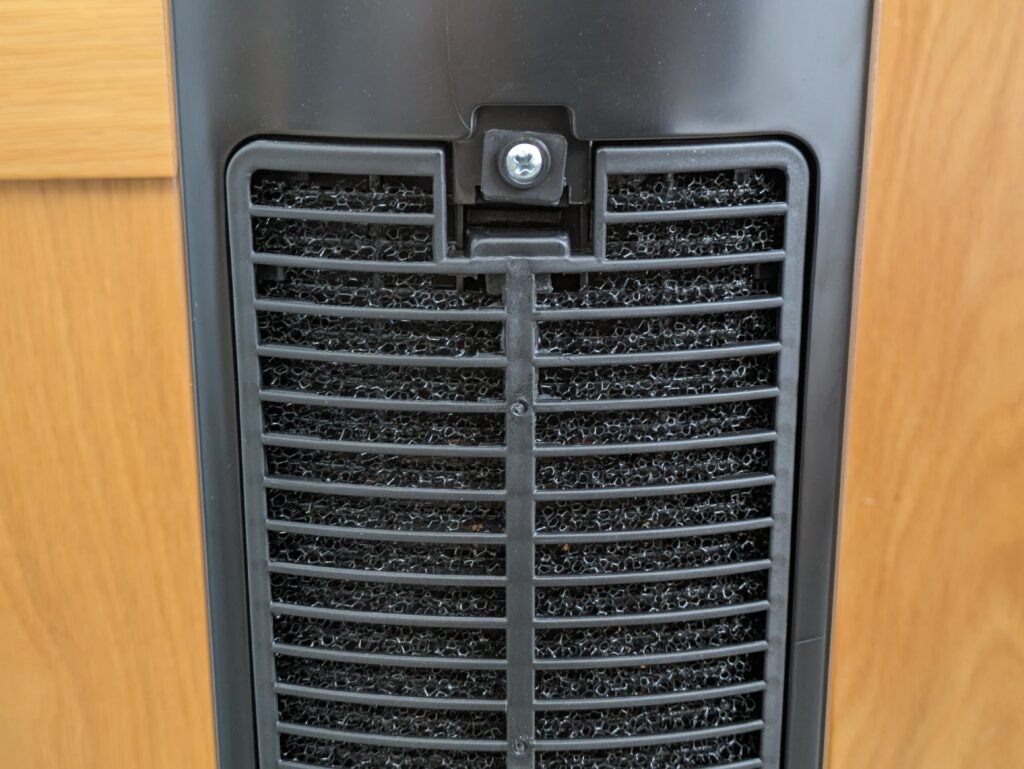
This heater doesn’t have any smart controls or energy saving features. It doesn’t care if you open a window, or whether you’re even in the room: It’ll keep doing whatever it’s set to. That said, it resets itself if you turn it off at the plug, so you can’t schedule it to come on using a smart plug.
Performance
- Effective heating
- A little loud
- Could be expensive to run
As you’d probably expect from a 2000W fan heater, this one proved quite effective at heating up a medium-sized bedroom. After 30 minutes on maximum power it had raised the air temperature from 18.8°C to a tropical 23.6°C. Oddly, the room didn’t get any hotter after another 30 minutes, but a smart radiator thermostat shielded from the airflow continued to register more heat, climbing from 16.8°C to 17.9°C over the full hour.
With a 2kW heating element, the VonHaus 2000W Oscillating PTC Heater uses a considerable amount of power. Like other PTC heaters, the flip-side of its quick warm up time is that it has a high peak power demand when it’s first switched on. I measured a brief spike at 2,900W, with the heater settling down to 2,100W within about 30 seconds. Over 30 minutes of full-power use it consumed 1.05 kilowatt hours (kWh), and after an hour it had used 2.05kWh. At the January 2024 price cap, that’s equivalent to about 59p.
In practice, so long as you set a realistic room temperature, this heater would use much less power once the room was up to temperature. It’s hard to say what this would typically cost as it depends on the outside temperature, the size and insulation of the room, and how warm you’re trying to make it. To keep a well-insulated, smallish room up to temperature, I’d expect it to use as little as 0.5kWh per hour, a cost of roughly 15p.
Like most other fan heaters, this one won’t stir up a Sirocco in your bedroom. It didn’t register on my anemometer, even when I placed it directly across the output grille. Despite this, it’s a little loud, coming in at 57.9dB from 15cm away, and 45.5dB measured from one metre in front. Not everyone would be able to sleep through that, particularly as the twin fans have a slight thrum as their sounds interact.
Latest deals
Should you buy it?
An effective fan heater
This is an effective heater, with a handy remote control. It doesn’t take up much floor space, either.
Just a bit basic
This heater feels just a little cheap, and it has slightly basic features for the price.
Final Thoughts
This is an effective fan heater, and it’s not particularly expensive, so it’s odd that it doesn’t seem to me like great value. Its metal grille, and some of the plastics used elsewhere, feel flimsy. And while its features are fine for most scenarios, it would be nice to also have open window detection. Overall this isn’t a bad buy, but in my tests it didn’t out-perform the Dreo Atom 316, which is much smaller, quieter and cheaper, and feels more solid. There are other alternatives in the guide to the best electric heaters.
How we test
Unlike other sites, we test every heater we review thoroughly over an extended period of time. We use industry standard tests to compare features properly. We’ll always tell you what we find. We never, ever, accept money to review a product.
Find out more about how we test in our ethics policy.
Used as our main heater for the review period
We measure the fan speed (if available) using an anemometer so that we can accurately compare performance between models
We measure the heat output of the fan and its effect on our test lab.
FAQs
PTC heaters are no more expensive to run than other fan or convection heaters. They typically have a high peak power use when they’re first switched on, but this results in a quicker warmup and more heat. Once they’re warm, they’ll use the same power as a conventional heater with the same rating.
Many fan heaters are PTC heaters – the term just refers to the technology used to make the heating elements. All PTC heaters tend to warm up very quickly when compared to simple wire elements.






